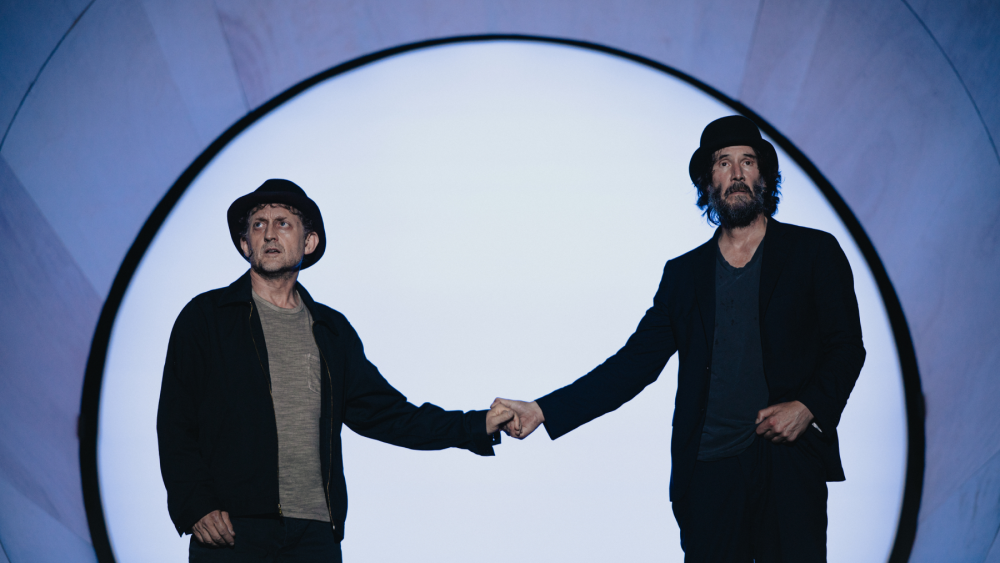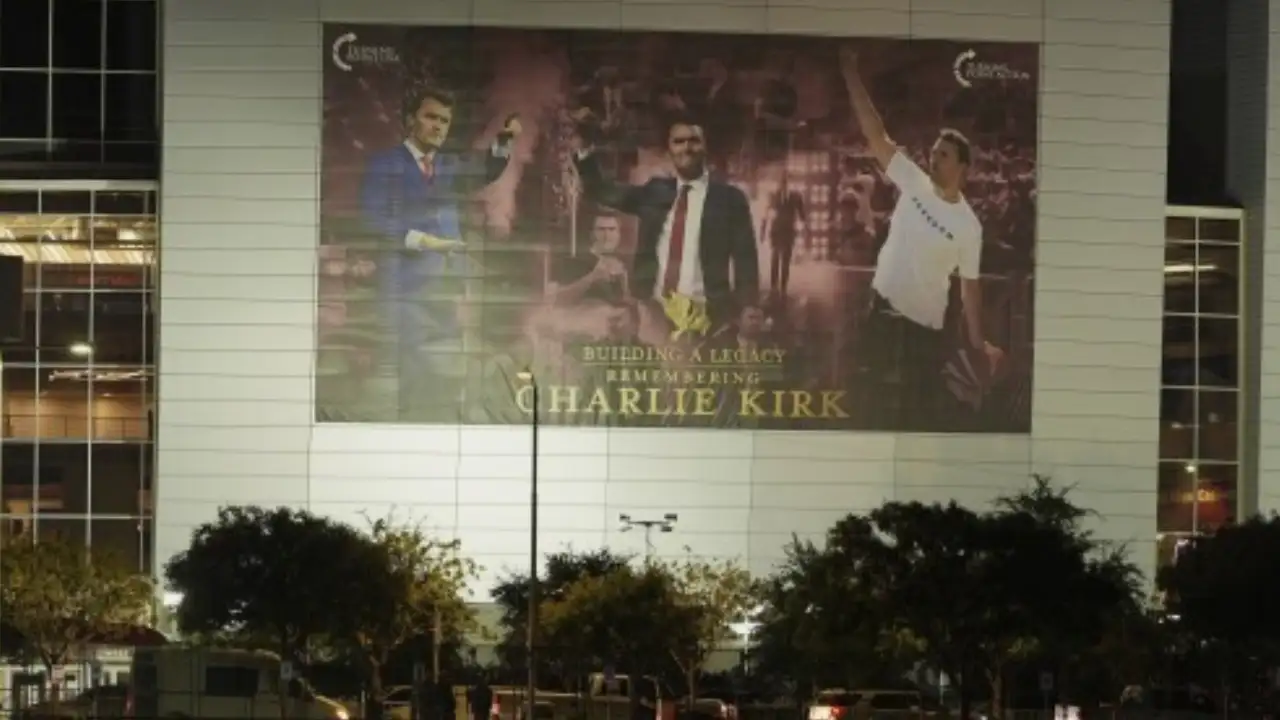
They partied with Napoleon and Socrates, foiled murderous robots from the future and outwitted Death himself. Now Keanu Reeves and Alex Winter, who played metalhead slackers in three “Bill & Ted” films over four decades, are bringing their buddy act to Broadway. Only instead of trying to cook up a rock song excellent enough to unite humanity, Reeves and Winter are killing time until Samuel Beckett’s most elusive character can make a big entrance in “Waiting for Godot.”
“Bill and Ted are the elephant in the room,” Winter says, acknowledging the association people have with the two stars. “Keanu and I have played them over the years, but we’re more than that. We’re also friends off camera and have our own lives together and our own relationship. We always approached playing Bill and Ted in a very grounded, sincere way — we didn’t think of them as cartoon characters — and we’re trying to bring the same approach to this show.”
Reeves and Winter are less than 24 hours from their first preview performance, an experience that a weary-looking Reeves describes as “terrifying but exhilarating.” It’s the culmination of more than three years of preparation, during which the actors took clowning classes, studied butoh, consulted Beckett scholars and scoured the archives of the University of Reading, where the playwright’s collection is stored.
“The play can get quite mannered in the way it’s produced, and you’re just standing there,” Winter says. “Sometimes actors just go dead while they’re waiting for those long pauses to end, and sometimes it just gets very stilted. So we had to do anything we could to avoid that.”
It was Reeves who came up with the idea to revive “Waiting for Godot” with Winter. “I was struck by muse lightning,” Reeves remembers, “and I immediately FaceTimed Alex.”
The pair quickly decided to enlist Jamie Lloyd, the hotshot British director known for his rad- ical revivals of everything from Harold Pinter’s “Betrayal” to Andrew Lloyd Webber’s “Sunset Boulevard,” to help bring the show to life. They met at Babbo, a cozy Italian restaurant near Washington Square Park that serves up homemade pasta to Manhattan’s elite.
“Everyone was so excited to welcome Keanu and Alex that they kept bringing more food to the point the table was overflowing,” Lloyd recalls. “And then Keanu got up in the middle of this tiny restaurant and started acting out the very first scene where Estragon tries to take off his boot. And he’s rolling around on the floor, performing Beckett live in the West Village.”
It shows the uninhibited intensity that the two friends are bringing to one of the most notoriously difficult shows to interpret and perform.
First staged in 1953, “Waiting for Godot” is about two men (Vladimir and Estragon) biding their time bantering and philosophizing, hoping that someone named Godot will finally appear and offer them salvation. Over the years, “Waiting for Godot” has been frequently revived and reimagined; generations of performers have wrestled with the esoteric play that’s seen as an allegory for organized religion, Cold War politics and sometimes sadomasochism.
“Our approach has been ‘OK, let’s treat this as a new play,’” Reeves says. “‘Let’s blow the sand mandala of the past, like this is an entirely new text.’” He mimes dusting fine grains from his hands.
Initially, Reeves suggested that the pair alternate nights as Estragon and Vladimir, but Lloyd dissuaded them from taking on that challenge. “The idea of memorizing the entire play felt like too big a feat for anyone,” Lloyd says.
Instead, Reeves became Estragon, the more simplistic and long-suffering of the duo, while Winter tackled Vladimir, the more commanding and verbose character. Lloyd, who believes the story is about friendship, encouraged the actors to tap into their own relationship, a bond forged not just through their work on the “Bill & Ted” franchise, but from rising through the Hollywood ranks together.
“We’re both in our 60s now. We both have lived a lot of life, good and challenging, and that all gets brought to the play,” Winter says.
Neither Winter nor Reeves cares much if audiences buy tickets expecting more Bill and Ted good times, only to be confronted with Beckett’s nagging existentialism instead.
“Whatever gets them in the theater,” Reeves says.



